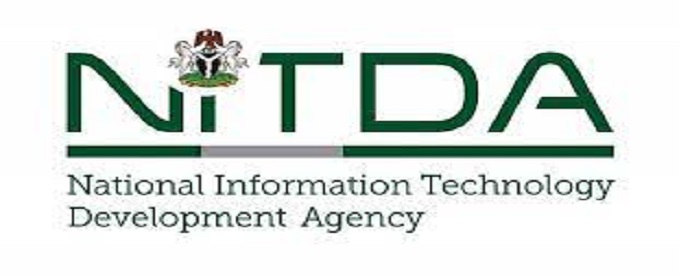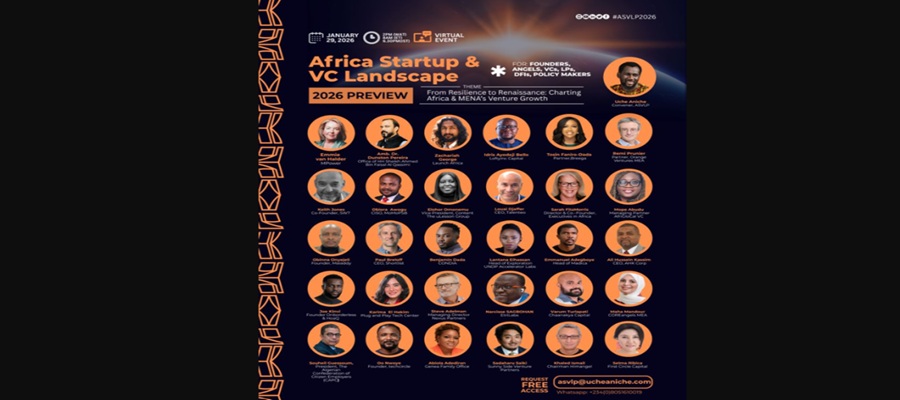Telecom
NITDA Set to Institutionalize Data Protection in Nigeria

In its commitment to upscale Data Protection in Nigeria, the National Information Technology Development Agency (NITDA) has begun the process of licensing and partnering with a qualified institution to set standards, prepare exams and issue certifications on data protection skill in the country.

These processes are part of the implementation of the Nigeria Data Protection Regulation (NDPR), a subsidiary of data legislation in the country.
Mallam Kashifu Inuwa, Director General of NITDA, strongly advised on the need for Data Protection Officers (DPOs), during a hybrid Symposium organized for Lagos State DPOs, saying; “data protection officers should constantly keep themselves abreast of trending innovations in keeping their data credible”.
Inuwa, while admonishing DPOs to improve their capacities by adopting best practices for Data Privacy, stated that Artificial Intelligence and Cloud Services are essential elements in safeguarding data from breach thereby enhancing the integrity of data.
He argued that it was pertinent to incorporate artificial intelligence into data protection to enhance its accuracy and consistency.
He further disclosed that there is need to sieve and categorize data elements which will determine the cloud adoption strategy to be used.
The DG also added that there is need to create professionals in the data protection ecosystem to meet global standards. “One of the ideas we are mulling is to have an industry association for DPOs and the proposed DPO Forum that would be a peer review mechanism and a point of contact with regulators to shape policies and propose standards for the industry”, he said.
According to Inuwa, since the issuance of the NDPR in 2019, NITDA has empowered DPOs by drafting, engaging the public, and publishing the NDPR Implementation Framework to shed light on the provisions of the NDPR for easy interpretation and application.
He further noted that the Agency’s partnership with the DPOs has created over 7,600 new job roles in the Data Protection sector.
“We envisage that Nigeria would lead Africa by certifying 350,000 persons with local and global competence in data protection by 2024”, Inuwa averred.
The Executive Commissioner of Ghana’s Data Protection Commission GDPC, Her Excellency Ms. Patricia Adusie-Poku, in her remarks applauded NITDA for the laudable initiative in organizing the symposium to add knowledge value to DPOs.
She stated that DPOs are like risk managers in their organizations and it is their responsibility to ensure that all requirements are put in place to checkmate data breach and promote Data Protection.
The symposium had in attendance, Mr Ridwan Oloyede from TechHive Advisory, Mr Yaya Itai from First Bank Plc, Mrs Moyosore Jide-Taiwo from Airtel Nigeria, Dr. Alexander Anago, Mr Bharat Soni from GTCO and a host of other data protection officers from various organizations.
Telecom
Amazon Axes 16,000 Jobs Worldwide in Major Restructuring Push

Amazon, the world’s largest e-commerce and cloud computing powerhouse, announced plans Wednesday to eliminate 16,000 jobs globally, escalating a restructuring drive first flagged in October with 14,000 earlier cuts.

Amazon
The layoffs, hitting corporate ranks across multiple divisions, aim to slash management layers, boost accountability, and dismantle bureaucracy, Senior Vice President Beth Galetti stated in an internal memo. Despite booming holiday sales and $21 billion quarterly profits on $180 billion revenue, Amazon seeks to redirect resources toward massive artificial intelligence investments amid slower post-pandemic growth and rising costs.
Galetti explained that while some teams finalised October adjustments, others required extended reviews, pushing total reductions toward 30,000—the firm’s largest ever. CEO Andy Jassy, pursuing leaner operations since 2021, has long signalled AI’s role in shrinking white-collar headcount, with corporate staff—about 350,000 of 1.5 million total—bearing the brunt, sparing warehouses.
The move mirrors Big Tech’s broader belt-tightening as firms recalibrate pandemic-era hiring binges against economic headwinds, AI disruption, and policy uncertainties under President Donald Trump. Amazon’s October cuts struck 2,000 in Washington state—including engineers, recruiters, analysts—and 1,500 in California, with fresh impacts undisclosed by location.
Jassy emphasised culture over pure finances in prior notes, blaming rapid expansion for excess layers after workforce doubling during COVID lockdowns fueled online shopping surges. Recent U.S. hiring slowdowns—to 50,000 jobs in December—underscore corporate caution amid AI’s job-shifting potential and tariff worries.
Analysts note the cuts free capital for AI dominance, pitting Amazon against rivals in generative tools despite no immediate financial distress. Ex-workers have decried impersonal processes, often learning via media leaks, highlighting tensions in Earth’s “best employer” shedding talent en masse.
As tech pivots to AI frontiers, Amazon’s aggressive pruning signals a new era: fewer bodies, sharper focus, betting machine smarts eclipse human scale in the post-boom landscape.
Telecom
Police Bust ₦7.7bn Telecom Hack Gang, Seize 400 Laptops in Massive Fraud Swoop

Operatives of the Nigeria Police Force smashed a sophisticated cybercrime ring Wednesday, arresting six suspects accused of hacking a major telecommunications company and looting airtime and mobile data worth a staggering N7.7 billion.

The Force Public Relations Officer, CSP Benjamin Hundeyin, disclosed in a statement that the suspects breached the telecom giant’s core billing and payment systems by compromising internal staff login credentials, enabling them to siphon off vast quantities of airtime and data for illicit resale.
Named in the arrests are Ahmad Bala, Karibu Mohammed Shehu, Umar Habib, Obinna Ananaba, Ibrahim Shehu, and Masa’ud Sa’ad – a mix of northern and southern names hinting at a cross-regional fraud network that preyed on Nigeria’s digital backbone.
Police swooped on the gang’s hideouts in coordinated raids across Kano and Katsina states in October 2025, with a final takedown in the Federal Capital Territory, recovering two mini-plazas masquerading as legitimate retail outlets stocked with over 400 laptops, about 1,000 mobile phones, and a Toyota vehicle.
Investigators also froze substantial sums in the suspects’ bank accounts, tracing the dirty money trail back to the diverted resources that left the unnamed telecom firm reeling from unauthorised activities reported in a desperate petition.
The breach, described by police as a “calculated assault on critical infrastructure,” allowed the hackers to manipulate the company’s systems undetected for months, offloading billions in airtime and data bundles through underground channels and raking in illicit profits.
Hundeyin vowed that the net was widening, with forensic experts combing through digital footprints and financial ledgers to expose any remaining accomplices or beneficiaries in what he called “one of the largest telecom heists in recent Nigerian history.”
Inspector-General of Police, IGP Kayode Adeolu Egbetokun, praised the crack team from the National Cybercrime Centre for their “relentless professionalism,” urging telecom firms to bolster cybersecurity amid a surge in digital predation.
As the suspects cool their heels awaiting arraignment under the Cybercrimes (Prohibition, Prevention) Act, the case underscores Nigeria’s growing battle against tech-savvy fraudsters targeting the N1.7 trillion telecom sector that powers millions of daily transactions.
Industry watchers warn that such breaches erode investor confidence and hike operational costs, ultimately passed onto consumers already grappling with soaring data tariffs in Africa’s most populous nation
Telecom
ASVLP 2026: Africa, MENA VCs Gear Up as Tech Funding Hits $4.1bn Rebound

As Africa and MENA’s startup ecosystems transition from post-correction resilience into a new phase of disciplined growth, the Africa Startup & VC Landscape Preview (ASVLP 2026) will convene leading founders, investors, policymakers, and ecosystem builders on January 29, 2026, for its second annual, agenda-setting virtual forum.

Following a challenging global venture cycle, 2025 marked a notable rebound across the African ecosystem, with startups raising an estimated $3.2–$3.3 billion over the full year.
The recovery was accompanied by significant structural shifts: Kenya emerged as the leading destination among Africa’s “Big Four” markets for the first time, while Nigeria recorded a year-on-year funding decline, reflecting changing investor preferences, macroeconomic pressures, and a broader recalibration toward capital efficiency and sustainability.
Sectorally, fintech remained the most funded vertical, while climate & energy, AI-enabled solutions, healthtech, and infrastructure-adjacent businesses gained increasing attention. Across Africa and MENA, development finance institutions (DFIs) and family offices played a more pronounced role in anchoring funds, deploying catalytic capital, and supporting blended-finance structures, reshaping how early-stage and growth capital is mobilized.
ASVLP 2026 is designed to translate these data points into forward-looking strategy.
The forum will bring together venture capitalists, angel investors, LPs, DFIs, family offices, founders, corporate leaders, and regulators from Africa, MENA, Europe, and North America to assess 2025 outcomes and chart priorities for 2026.
The program will feature keynotes, fireside chats, panels, and deep-dive roundtables, including discussions on:
· The 2026 Africa & MENA FinTech Landscape, focusing on security, profitability, regulation, and growth frontiers
· Emerging Fund Managers, capital formation, and LP alignment
· Talent, operator depth, and institutional capacity as constraints to scale
· Regulatory evolution and cross-border market integration
A major highlight of ASVLP 2026 will be the Final DealRoom Pitch Session, where a curated group of high-potential startups will present to an experienced panel of investors.
• Founders can apply to pitch via: bit.ly/ASVLP-DR-Founders
• Investors seeking DealRoom access can request entry via: bit.ly/ASVLP-DR-Investors
Confirmed speakers for ASVLP 2026 include Khaled Ismail (HIMangel), Idris Ayodeji Bello (LoftyInc Capital), Zachariah George (Launch Africa), Tosin Faniro-Dada (Breega), Selma Ribica (FirstCircle Capital), Maha Mandour (COREangels MEA), Joe Kinvi (Borderless), Remi Prunier (Orange Ventures MEA), Karima El Hakim (Plug and Play Tech Center), Souheil Guessoum (President, The Confederation of Citizen Employers – Algeria (CAPC)), Remi Prunier (Partner, Orange Ventures, MEA), Maha Mandour (COREAngels MEA), Ali Hussein (President, Kenyan FinTech Association), Patrick Okebu (CIO, Interswitch Group) among other leading voices shaping capital, policy, and innovation across the region.
“The conversation has shifted,” said Uche Aniche, Convener of ASVLP. “It’s no longer about whether capital will return to Africa and MENA, but what kind of capital, deployed with what discipline, and in service of which long-term outcomes. ASVLP exists to help the ecosystem make sense of that transition.”
Participation in ASVLP 2026 is free but strictly by invitation.
Interested participants are encouraged to repost the official announcement on LinkedIn and comment #ASVLP2026 to receive a private registration link. They could also email [email protected] and request invite.

 E-Financial2 days ago
E-Financial2 days agoCBN Upgrades Licences of Opay, Moniepoint, Kuda, Palmpay, Paga to National Status
- E-Financial2 days ago
Nigeria’s 9 Top FinTech Firms Valued at $10.6Bn in January 2026

 News2 days ago
News2 days agoTech Executives Double Down on AI, Talent and Adaptive Strategies to Lead in the Intelligence Age

 E-Financial2 days ago
E-Financial2 days agoNIBBS to Boost Financial Inclusion with Offline Payment Solutions

 News2 days ago
News2 days agoDHQ Indicts Brigadier General Abubakar Sadiq, 15 Others in Alleged Coup Plot againt Tinubu

 E-Business2 days ago
E-Business2 days agoFirm Identifies AI as Common Denominator in Entertainment Industry’s 2026 Security Threats

 General News2 days ago
General News2 days agoWEBINAR: Techeconomy Business Series Hosts Experts from MTN, Interswitch, BusinessPlus, others this Wednesday

 News2 days ago
News2 days agoCourt Fines Airtel N210m for Unauthorised Use of ‘Nigeria Go Survive’ Song



























